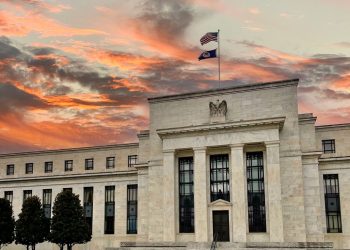
Obama Asks for Rest of Bailout Money, Pledges Tougher Rules
By Kevin G. Hall and David Lightman
RISMEDIA, January 14, 2009-(MCT/RISMedia)-President-elect Barack Obama asked the Bush administration on Monday for the remaining $350 billion in Wall Street rescue money, hoping to have the funds available for use when he takes office next week while Congress wrestles with what’s sure to be the largest economic stimulus program in the nation’s history.
“I felt it would be irresponsible for me, with the first $350 billion already spent, to enter into a new administration without any potential ammunition should there be any potential emergency or weakening of the financial systems,” Obama said after meeting with Mexico’s visiting president, Felipe Calderon.
Mindful of growing congressional outrage that the Treasury Department failed to follow its mandate of using the money to help homeowners with distressed mortgages-a charge also made by an oversight panel-Obama vowed to manage the second half of October’s unprecedented $700 billion bailout with a greater public accounting.
“I think many of us have been disappointed with the absence of clarity, the lack of transparency, the failure to track how the money has been spent and the failure to take bold action in areas like housing,” he said.
His comments address some congressional concerns in both parties about the bailout spending, more formally known as the Troubled Asset Relief Program (TARP).
“There is unanimity in our caucus about the outrage of what’s happened with the existing TARP,” House Democratic Caucus Chairman John Larson, D-Conn., said after members met last week. The caucus gauges support within the party for legislation.
Republicans expressed the same concern.
Republican Senate Policy Committee Chairman John Ensign of Nevada, like many of his Republican colleagues, thought that more money should be aimed at helping to revive the housing market, not helping struggling carmakers. And, he said, it should be used more for the purpose that originally was intended.
“Certainly the economists today believe that was a huge mistake, not using it to buy up some of those mortgage-backed securities,” he said, adding that the money should “try to stabilize the financial institutions by getting rid of some of these toxic assets in the future.”
When the rescue effort was signed into law in October, it was aimed at helping to get mortgage bonds off the balance sheets of banks. Instead, the Treasury Department injected most of the first $350 billion directly into banks to shore them up. However, it required little disclosure of how the money would be used.
Most lawmakers don’t want the program to stop, and they want to get on with what they see as even more urgent: crafting a broad economic stimulus plan. Congressional leaders want that package approved by Feb. 13, and they expect to run into controversy over a host of provisions, notably the size and look of tax cuts.
Sen. John Kerry, D-Mass., a senior Senate Finance Committee member, said senators needed little convincing to release the bailout money.
“That’s an argument most senators understand,” he said, adding, “I want conditions: transparency, accountability and specifics of how it’s going to be used. That’s very important.”
That’s exactly what’s in legislation to overhaul the relief program proposed by House Financial Services Committee Chairman Barney Frank, D-Mass. In a statement Monday, Frank signaled his willingness to go along with Obama but didn’t back off his legislation.
Frank still hopes to pass legislation that puts tougher requirements on the bailout spending, including dedicated money for the housing problem and strict limits on executive compensation for companies that get bailout money.
Obama transition team members, speaking on the condition of anonymity in order to speak more freely, said that most of what Frank sought was doable.
“We believe we can make most, if not all, of the reforms to the financial stability program administratively,” one official said, adding that “we’ve been encouraged by our conversations so far” with congressional leaders.
It effectively would take two-thirds majorities of both houses of Congress to stop the money, since President George W. Bush and Obama probably would veto any effort to disapprove the measure. The first Senate vote could come Thursday, according to a spokesman for Senate Majority Leader Harry Reid, D-Nev.
After conferring with Bush administration officials, Obama’s designee to head the National Economic Council, Lawrence Summers, sent a letter to congressional leaders Monday promising greater accountability, more disclosure and greater efforts to direct federal bailout money to the troubled housing sector.
The wording of the letter touched on virtually all elements of the legislation that Frank is preparing.
Separately, the Federal Deposit Insurance Corp. on Monday released a letter to 5,100 banks and financial institutions it regulates, asking them to implement a process for monitoring the use of capital infusions they’ve received from any federal government bailout program.
“We’re not requiring specific reporting, but asking our banks to monitor how the funds are being used,” spokesman David Barr said. The FDIC had asked this for rescue efforts it oversees, but it’s expanding the request to all federal bailout programs.
In related news, this morning U.S. Housing and Urban Development Secretary Steve Preston will kick-off a major financial literacy campaign to help families prevent foreclosure. HUD’s new “Keep Your Home. Know Your Loan.” campaign also seeks to fight the proliferation of “foreclosure rescue” scams that are victimizing struggling homeowners by pushing them closer to financial ruin.
Preston and Emmy Award-winning actress Ruby Dee will unveil HUD’s new print, television and radio public awareness campaign at Neighborhood Housing Services, a New York City agency that offers clients free mortgage delinquency and default resolution counseling.
(McClatchy Newspapers correspondent Margaret Talev contributed to this report.)
© 2009, McClatchy-Tribune Information Services.










